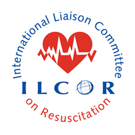The International Liaison Committee on Resuscitation (ILCOR) has published its latest Consensus on Science with Treatment Recommendations (CoSTR), outlining vital updates in resuscitation science and post-cardiac arrest care. Our 2024 CoSTR, has been developed by global experts, to offer evidence-based recommendations to improve patient outcomes.
Key Highlights of the 2024 ILCOR CoSTR:
- Firm Surfaces for CPR: CPR on a firm surface remains critical for effectiveness; however, it is essential to avoid delays in CPR initiation.
- Post-ROSC Blood Pressure Targets: For adults following cardiac arrest, maintaining a mean arterial pressure of at least 60-65mmHg is suggested. For children, targeting a systolic blood pressure above the 10th percentile for age is recommended.
- Management of Seizures Post-ROSC: Both adults and children who experience seizures after ROSC should receive treatment. Seizure prophylaxis is not advised.
- ECMO in Select Paediatric Cases: Extracorporeal Membrane Oxygenation (ECMO) may be considered in specific paediatric cases, including those with signs of pulmonary hypertensive crisis or refractory cardiac arrest, either as a bridge to recovery or as part of an organ transplant evaluation.
- Delayed Umbilical Cord Clamping: For preterm infants (<37 weeks) not requiring immediate resuscitation, delaying cord clamping for at least 60 seconds is recommended.
- Therapeutic Hypothermia for Newborns in Low-Resource Settings: Therapeutic hypothermia is suggested for term newborns with moderate-to-severe hypoxic-ischemic encephalopathy in low- and middle-income countries, provided a supportive neonatal care setting is available.
- Cognitive Aids for Healthcare Professionals: Cognitive aids are suggested for healthcare professionals involved in resuscitation; however, these aids are not recommended for laypersons performing CPR.
- Gamified Learning in Resuscitation Education: The CoSTR suggests consideration of gamified learning methods to enhance resuscitation education.
- Rapid-Cycle Deliberate Practice in Training: Incorporating rapid-cycle deliberate practice in resuscitation training is encouraged to improve skill retention.
- First Aid for COPD Patients: First aid providers trained to administer supplemental oxygen should use pulse oximetry and aim for an oxygen saturation of 88-92% in patients with a history of COPD.
These recommendations emphasize practical and innovative approaches to improving survival and recovery rates for patients undergoing resuscitation. The ILCOR CoSTR serves as a global treatment recommendations, supporting healthcare providers and lay people in delivering effective, science-based resuscitation care.
For more information see:
Circulation: https://www.ahajournals.org/doi/10.1161/CIR.0000000000001288
Resuscitation: https://www.resuscitationjournal.com/article/S0300-9572(24)00308-3/fulltext
For the Full COSTR see the CoSTR Website: https://costr.ilcor.org/
